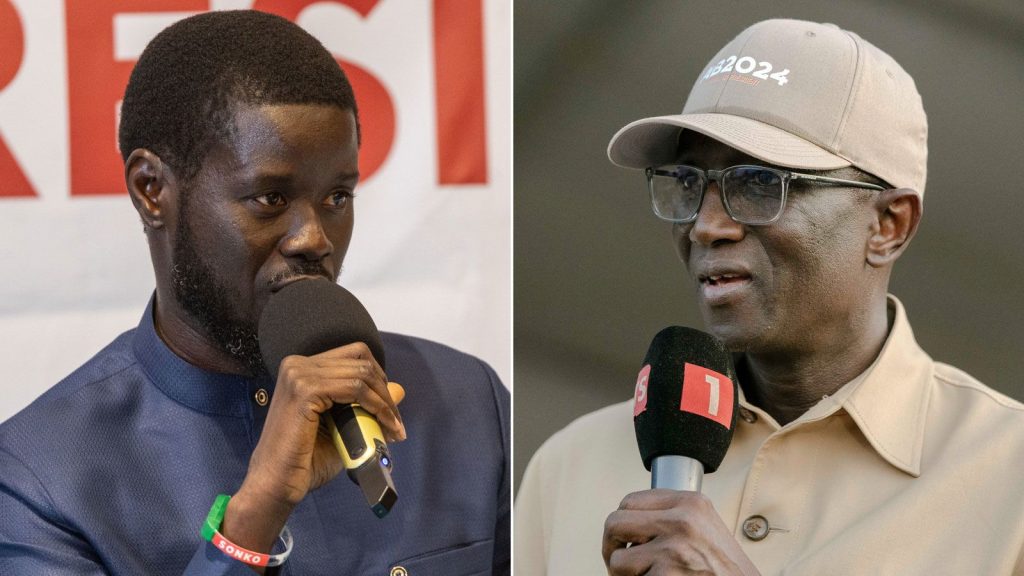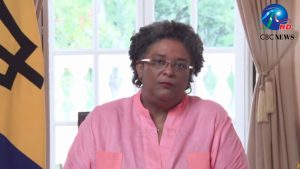
(CNN) — Senegalese voters will choose their next president on Sunday in a delayed and high-stakes election that poses a test for the country’s democracy.
Outgoing President Macky Sall, whose second and final term expires on April 2, has promised to peacefully handover to his elected successor after the country’s top court blocked his attempts to delay the election – originally scheduled for February 24 – for 10 months.
A long list of candidates are running, but two former tax inspectors – one representing the government, the other the main opposition coalition – are considered frontrunners.
However, underlining deep-seated tensions, recent protests have turned deadly in the West African nation, with angry youths burning tires in the streets and calling for the vote to be held before Sall stepped down and not after, as he proposed.
Sall, who has led Senegal for 12 years, is leaving a checkered legacy and is accused of destabilising the country through his attempts to prolong his grip on power by cracking down on the opposition and abruptly postponing polls just three weeks to the date.
However, Sall was unapologetic about delaying the vote.
“I have no apology to make because I did nothing wrong,” he told the BBC this week. “All the actions that have been taken have been within the framework of the law and the regulations.”
Senegal has been heralded as one of the most stable democracies in the coup-prone West African region.
Polls will open at 8:00 am (local time) Sunday and close at 6:00 pm, the electoral commission said, setting the stage for a fiercely contested presidential race that analysts say is open and uncertain.
In a tense political campaign season, analysts are braced for a potential outbreak of violence, says Ousmane Sene, who heads Dakar-based research organisation, the West African Research Center (WARC).
“The risk of disruption is stronger if the Pastef candidate [of the main opposition coalition] loses as they are the ones who have been challenging the credibility of the Senegalese institutions.”
Who are the main candidates?
A diverse field of candidates are vying for the presidency and Sall’s successor will be elected from a pool of 19 candidates, each one promising reform to tackle some of the county’s most pressing problems.
Dakar-based political analyst Mamadou Thior, however, predicts a two-horse race between Sall’s handpicked candidate Amadou Ba of the ruling coalition, and Bassirou Diomaye Faye, a substitute for prominent opposition leader Ousmane Sonko who was barred from the polls after the Senegalese Supreme Court upheld his conviction over a defamation case in early January.
Sonko’s appeal to overturn a libel conviction that handed him a six-month suspended prison sentence was rejected by the top court, jeopardising his hopes for the presidency.
The 49-year-old firebrand opposition leader has faced many legal woes since 2021. He was cleared of a rape charge last year but found guilty of corrupting young people, which according to the country’s penal code is “immoral behaviour” towards anyone younger than 21. His supporters described his legal battles as politically motivated.
Sonko enjoys widespread support among Senegalese youth who account for over 60% of the country’s population.
Despite the shortened campaign periods, both candidates have sparked fierce support and debates across the country.
Ba, 62, a former tax inspector and minister for finance left his role as prime minister earlier in March to kickstart a rushed campaign for the Senegalese top job with less than three weeks to the vote.
Faye, 44, another former tax inspector and political detainee who had been imprisoned since April last year until his release last Thursday, has had just a little over a week to campaign.
Faye was chosen as a backup candidate for Sonko in November after their Pastef party which was dissolved by the government formed a coalition with other opposition parties. Both men were released last week after Sall granted amnesty to political prisoners.
To be declared president, a candidate must secure more than 50% of the total ballots. If no candidate attains an absolute majority in the first round of voting, a run-off election will be held after two weeks. Just over seven million of Senegal’s 18 million people are registered to vote in this election, the country’s electoral body said.
Thior suggested the electorate are ready for “new faces,” and the next president could emerge from the opposition.
“We’re likely to see somebody from the opposition winning this election because … the Senegalese people want to see new faces, “Thior said. “Ba can be the right man in the right place but the main problem he has is that people see him as a continuum of Macky Sall who has been in power for 12 years and there’s a yearning for change in Senegal.”
Prominent among the other candidates is former prime minister Idrissa Seck, who narrowly lost out to Sall in the 2019 election. He told CNN in an interview last year, “The next president is likely to come from the opposition … And I’m working very hard for that to happen.”
Faye told Senegalese media that voters must “choose between continuity and rupture.”
“If the Senegalese want a paradigm shift, transparency in the management of public funds, equitable sharing of resources, let them try me as President of the Republic,” said Faye, who said he had declared his assets and urged Ba to do the same. Faye did not specify what role his key ally Sonko would play in his government if elected.
What are the main issues?
At the heart of this election are the concerns of Senegal’s youth.
They, like other voters, are seeking urgent solutions to high unemployment and rising food prices, according to Sene.
Hit by record high inflation which rose to 15% in 2022, Senegal is grappling with a cost-of-living crisis like many other countries on the continent and globally.
High rates of unemployment have also set off an exodus of Senegalese youth who are making perilous journeys on wooden boats crossing the Atlantic Ocean to the Spanish Canary Islands, with the hopes of making it to Europe for a better life.
Migration from the treacherous Atlantic route reached an all-time high of nearly 40,000 people last year, with the International Organisation for Migration saying that “departures are often prepared from the coasts of Senegal.”
“Thousands of young people are leaving the country using the boats to go to Spain. Some have died in the sea. Some try to get into the US through Nicaragua. It shows how desperate these young people are due to the failure of President Sall to create employment,” Thior said.
“Another issue will be the fair distribution of incomes and revenues made with the soon-to-be commercialised gas and oil resources,” Sene said of priorities that might influence how voters cast their ballots.
For decades, Senegal’s economy has relied on revenue from mining, tourism, construction, fishing and agriculture but has now turned toward exploring its oil and gas reserves which the International Monetary Fund said will boost the country’s economy.
The ruling coalition candidate Ba kicked off his campaign promising “massive employment” for young people and improving the “purchasing power of households” by creating thousands of jobs.
His opponent Faye, who has equally promised to create jobs, campaigned strongly against corruption, and vowed to reexamine energy contracts as Senegal prepares the launch of its oil and gas production later in the year.
“No country can develop when … corruption and embezzlement of public funds are endemic,” Faye said in a recent interview.





More Stories
Solutions in progress
Trump meeting with Netanyahu
Multi-million dollar grant for Haiti